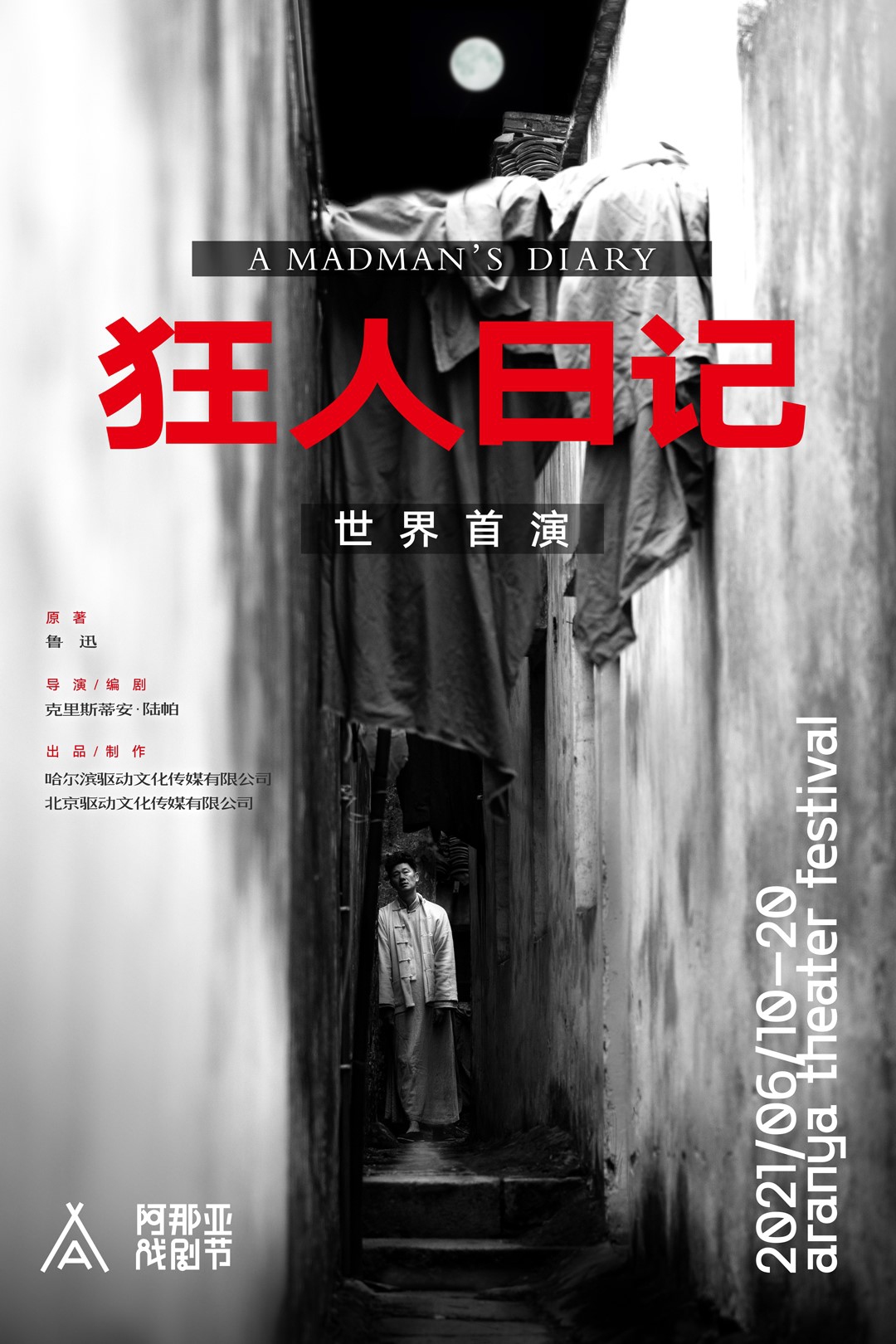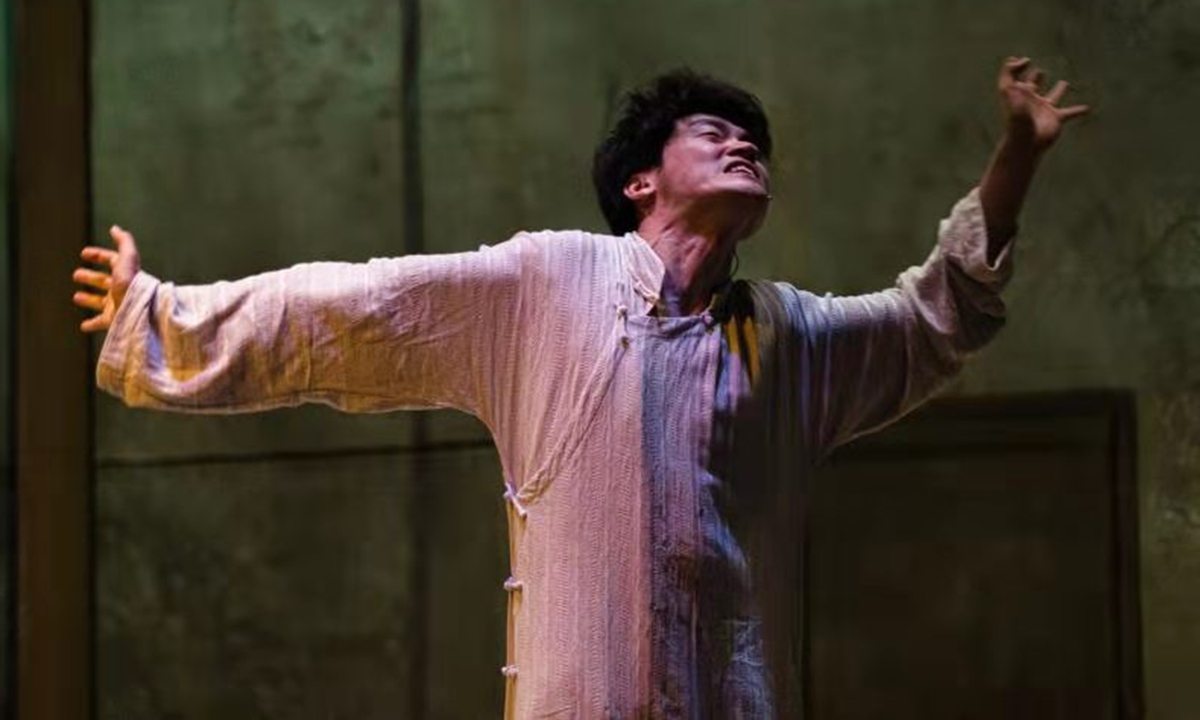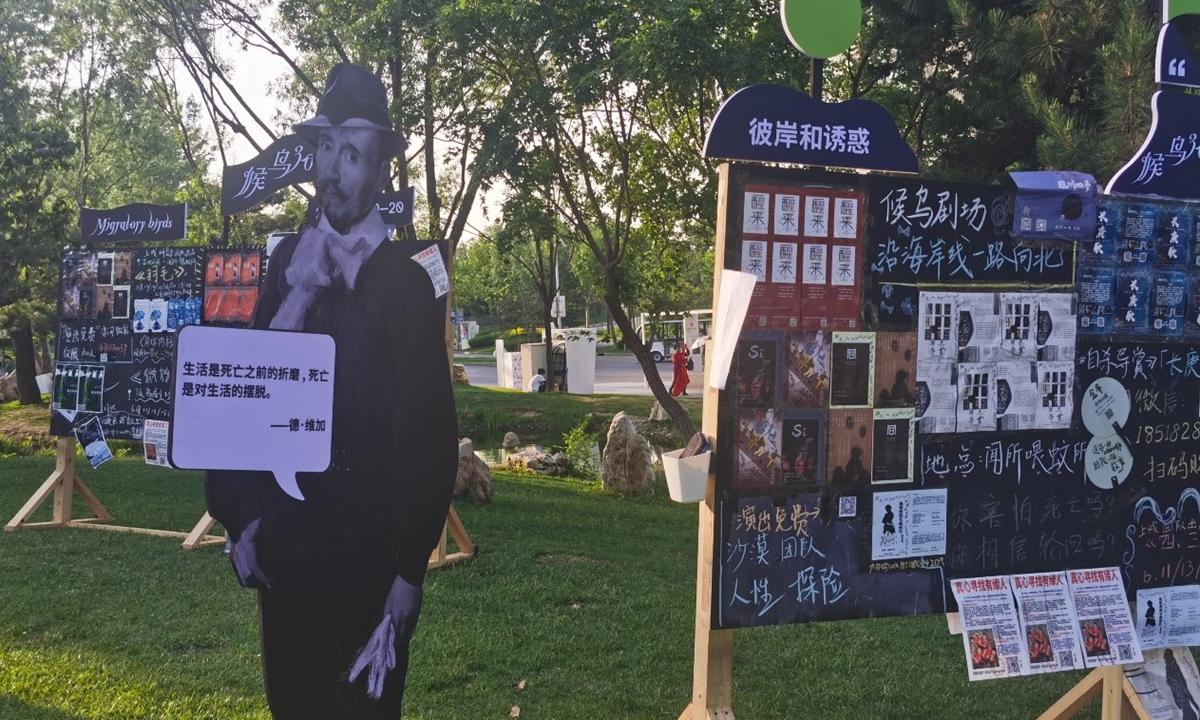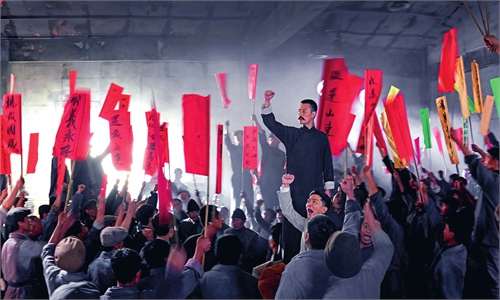ARTS / THEATER
Polish drama master Lupa gives Western interpretation to Lu Xun's classics to commemorate Lu's 140th anniversary

The poster of “A Madman's Diary” Photo: Courtesy of Aranya
How does a Western drama master interpret the leading figure in modern Chinese literature, Lu Xun, and his depiction of the bygone China of the 1910s? The European theater giant and drama master from Poland Krystian Lupa gives his answer, with latest drama masterpiece of "A Madman's Diary" - an influential short novel by Lu Xu - which impressed Chinese young theater fans at the recently concluded drama festival in Aranya, a resort community known for its innovative architectural and cultural offerings.
At the world premiere, many audiences saw the script re-written by Lupa as a bridge linking Eastern and Western cultures, which interpreted Lu Xun, a remarkable figure for China's New Culture Movement during the 1910s and 1920s, from a Western angle, to trace back the period of "cannibalism."
Lupa's work is to pay tribute to the 140th anniversary of Lu Xun's birth.
Written in 1918, Lu Xun's "A Madman's Diary" represents the birth of vernacular Chinese literature. The story piece portrayed a struggle for spiritual awakening endured by a young man amid the "cannibalistic" atmosphere in fusty Chinese society but gets marked out as suffering from a bout of madness by people around.
The drama narrates how a protagonist's increasing obsession with cannibalism which he believes is a common practice around him. He is convinced that sooner or later he will be eaten. As his paranoia increases, he grows convinced that cannibalism is widespread and despairs about saving himself.
Chinese 2021 TV drama Awakening Age, which depicts the story of how the Communist Party of China (CPC) was founded in 1921, exposed A Madman's Diary to many young audiences again and remains a hot topic on social media, where discussions show that it has played a positive role in educating young people about China's revolutionary history.
The series recreates the period in which Chinese writer, poet, and literary critic Zhou Shuren, more commonly known by his pen name Lu Xun, began to create A Madman's Diary after becoming disappointed by Chinese society at the time.
"It seems that Lu Xun's popularity did not die out and has become familiar to more foreign creators. More young and international dramatists are interested in this pioneer of modern Chinese literature," a 26-year-old audience member surnamed Kang told the Global Times at the premiere of the drama at Aranya Drama Festival.
Kang is one of many young drama fans who particularly signed up for the festival to attend the performance of A Madman's Diary which was believed to have enlightened the public when the Chinese were under the pressure of feudal rulers and imperialist bullies.
The diary ends with a poignant plea to "save the children." The scene brings tears to Kang's eyes, as she said Lu Xin's cry from 100 years ago transcended space and time to reach her- a confrontation against the social environment, depicting firm courage and willpower.
"What Lu Xun desired for was a peaceful, egalitarian, and mutually supportive, like the one we live in today," Kang said.

Polish drama master Krystian Lupa Photo: Courtesy of crew
Lupa, who is familiar with a large number of Lu Xun's works, extends this over 4,000-word written piece into a meticulous, nearly 5-hour-long drama.
Instead of employing a traditional approach to convey the plot, Lupa creates comprehensive, multi-layered visual and auditory landscapes via various artistic media, guiding the audience to decipher and interact with the complex spiritual world of a madman.
"I learned that Lu Xun is a revolutionary figure in his time. He is very unique, and so were his works," Lupa told the Global Times.
Madman's diary is not a private work, but more a great piece that reflected the era, and introduces the period's enduring cruel societal problems, as people neither care for nor understand each other, Lupa said. "I have been as distinctive as a 'madman,' and have been rejected and despised by others, and these works seem to me like reflections of my private life. Cruelty and violence in this world are manifested in the lower classes of society in a different way."

“A Madman's Diary” premieres in Aranya. Photo: Courtesy of crew
Fresh elements in a Western way
Lupa incorporated many elements from Lu Xun's other works into the drama. For example, Lupa created the role of the Madman's "sister-in-law" in his stage play.
Well-known Chinese actress Mei Ting who reprises a starring role as madman's "sister-in-law" told the Global Times that the role is a spiritual inheritance from the antagonist after his death.
"The sister-in-law is very similar to the madman on a spiritual level. The madman was even a spiritual life pillar for his sister-in-law. The madman seems to have transferred his psychological dependence from his mother onto his sister-in-law," Mei explained.
"Though there are cultural differences with the Chinese interpretation of the novel, Lupa, as a psychologist and a physicist, is also able to see it from the broader perspective of cannibalistic nature that actually existed globally not only in China," said Mei.
Mei believes that the Madman's Diary is still relevant to the youth today because it teaches young people in peaceful environments to care about the social environment, rather than simply advocating for money or individualism.
In A Madman's Diary, Lupa wrote the script, directed the plot, designed the stage, costume, music, and lighting in person for the creative work.
Against the challenge of the epidemic and strict quarantine requirements, Lupa talks to his actors and gives guidance via remote video, getting a tag of "online crew team" for the masterpiece.

Aranya Drama Festival Photo: Courtesy of Aranya
The successful worldwide premiere in the cultural hub Aranya brought more anticipation for its launch across the world.
Aranya, a word that means "desert" in the Sanskrit language, becomes a seaside community in North China's Qinhuangdao, near Beijing, which births a lot of impressive cultural works in its 11-day long drama festival including 25 specially-invited plays from home and abroad, and "reading performances" of 17 masterpiece classic plays worldwide.
The resort popular with many young people with its artistic architecture has become a memorable backdrop for theater arts from esoteric pieces by lesser-known producers of drama classics and high-anticipated performances.

Aranya Drama Festival Photo: Hu Yuwei/GT




